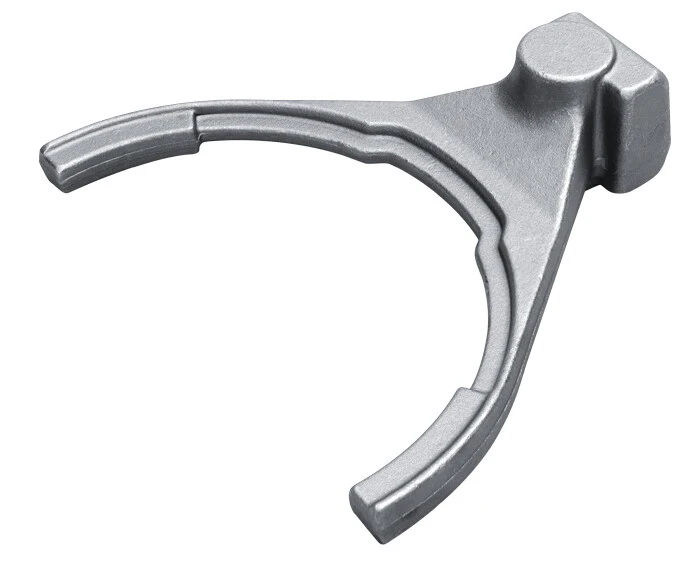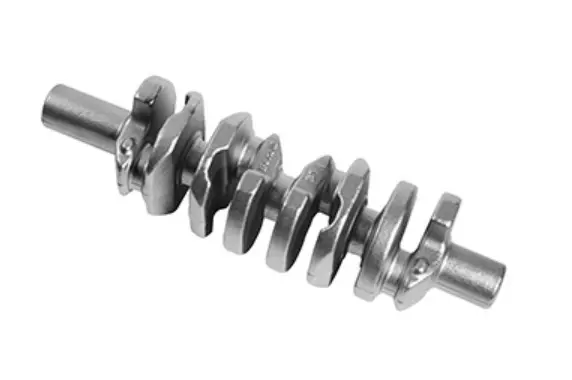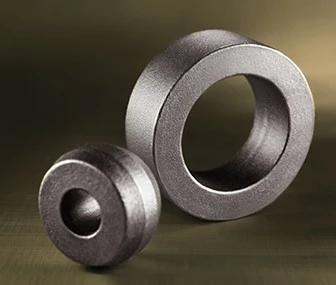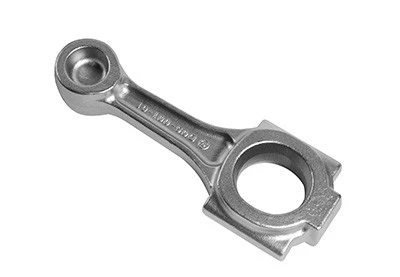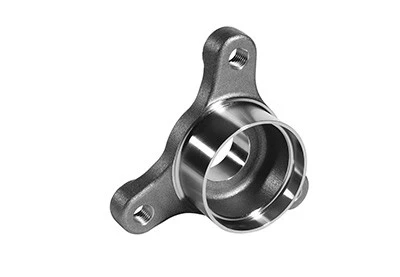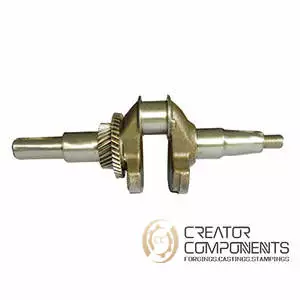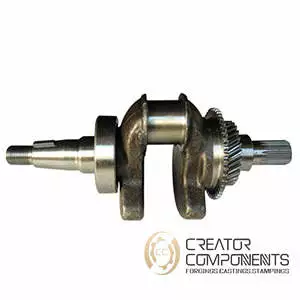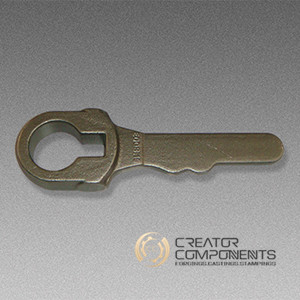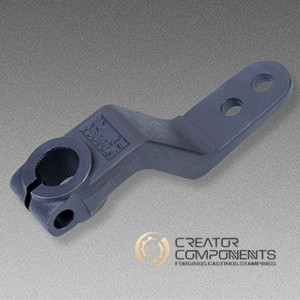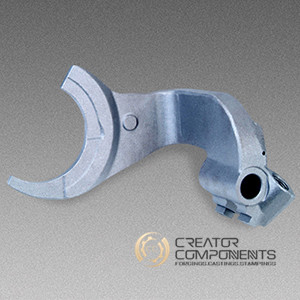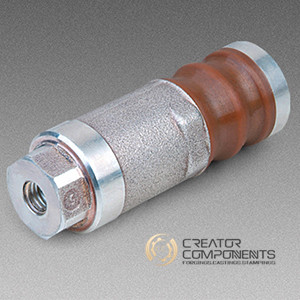Other Metal Forging
Other Metal Forging
Products List
Clutch Fork used in gearbox.
Forged crankshafts are usually made of high-strength alloy steel, and their surfaces are usually processed by heat treatment, hardening treatment, and other processing methods to improve their wear resistance. This wear resistance can effectively reduce crankshaft wear during prolonged high-speed rotation, while also enabling the vehicle to better adapt to various working environments.
Properties of Steel Forgings
Strong & Durable : Steel forgings have a generally higher strength and are typically tougher than steel processed in other fashions. The steel is less likely to shatter on contact with other objects for example, making forged steel highly suitable for items such as swords. This increased strength and durability is a result of the way in which the steel is forced into shape — by pressing or by hammering — during the forging process. The steel’s grain is stretched by this process, and ends up aligned in one direction, as opposed to being random. Following the pressing or hammering, the forging is cooled in water or oil. By the end of the process, the steel is stronger than it would have been had it been cast, for example.
Anisotropic: A steel forging’s strength isn’t consistent all the way through; instead, steel forgings are anisotropic, which means when the metal is worked on and deformation occurs, the steel’s strength is greatest in the direction of the resulting grain flow. This results in steel forgings which are strongest along their longitudinal axis, while in other directions, the forging will be weaker. This differs from steel castings, which are isotropic and therefore have almost identical properties in all directions.
Consistency Between Forgings: Since the process of forging is controlled and deliberate, with each forging undergoing the same steps, it’s typically possible to ensure a consistent material over the course of many different forgings. This is in contrast to cast steel, which is more random in nature due to the processes used.
Limit on Size: During the forging process, it’s more difficult to shape the metal, since forging occurs while the steel is still solid, unlike in casting where the metal has been reduced to its liquid form as part of the process. Since the metallurgist working with the steel will have more difficulty altering the metal’s shape, there’s a limit on the size and the thickness of the steel which can be successfully forged. The larger the metal section being worked on, the harder it is to forge.
Forging dies are usually made of high-alloy or tool steel. Dies must be impact- and wear-resistant, maintain strength at high temperatures, and have the ability to withstand cycles of rapid heating and cooling. In order to produce a better, more economical die the following standards are maintained.
Drop forging is a forging process where a hammer is raised and then "dropped" into the workpiece to deform it according to the shape of the die. There are two types of drop forging: open-die drop forging and impression-die (or closed-die) drop forging. As the names imply, the difference is in the shape of the die, with the former not fully enclosing the workpiece, while the latter does.
Forge's steel forgings are built to meet aviation industry specifications and standards for its advantages. Our unique parts optimization capabilities are particularly important to this sector and its “zero failure” tolerances. At the same time, our diverse client base benefits from the processes and practices designed to address the aerospace universe. At CT Forge, process control is paramount, resulting in more value-added products and services for our customers. Our steel forgings are used in below industrial applications:
Aerospace Automotive Burners Defense
Electronics Farm Machinery Food & Beverage Heavy Machinery
Industrial Machine Tool Medical Tools Military
Mining Nuclear Oil & Gas Optics
Packaging Petroleum Power Generation Pressure Vessel
Pumps Recreation Valves
CR 14 CSF 95
China Alloy Steel Forged Crankshaft manufacturer Creator provides AISI 4340 Alloy Steel Crankshaft, used as engine crankshaft for auto or motorcycle.
CR 14 CSF 94
China Alloy Steel Forged Crankshaft manufacturer Creator provides AISI 4140 Alloy Steel Forged Auto Engine Crankshaft, Electro-plating, used for auto.
CR 14 OMF 04
China Nonferrous Metal Auto Forged Part Producer Creator Offers Adjusting Arm
Forging for Automobile and Motorcycle Application, Forging Process.
CR 14 OMF 03
China Metal Automobile Forging Manufacturer Creator Produces Adjusting Arm Forged
Parts, Automobile and Motorcycle, OEM Services Available.
CR 14 OMF 02
China Nonferrous Metal Machinery Forging Component Producer Creator Offers Nonferrous Metal Forged Components for Machinery, Forging Process.
CR 14 OMF 01
China ISO Nonferrous Metal Mechanical Forged Part Manufacturer Creator Provides Nonferrous Metal Forged Parts with ISO 9001: 2000 certificate.

